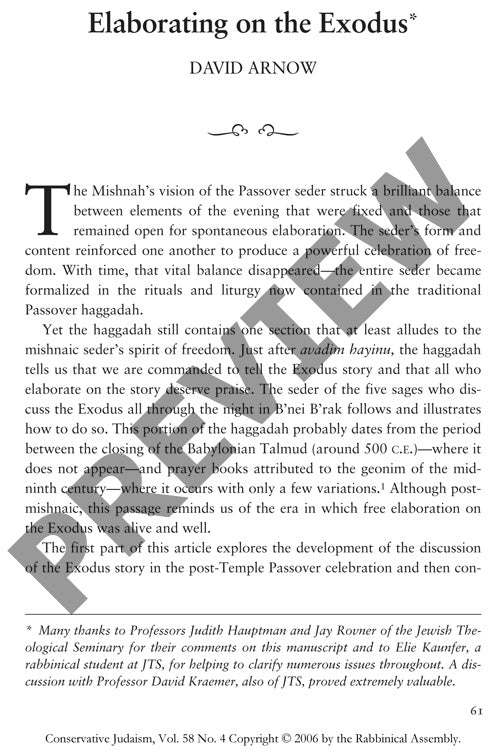Elaborating on the Exodus
Couldn't load pickup availability
A tension between fixed liturgy and spontaneous storytelling has shaped the Passover seder's narrative evolution since its earliest codification. While today's traditional haggadah follows a highly structured format, the Mishnah originally envisioned a more dynamic celebration balancing prescribed elements with creative elaboration - a marked departure from the Tosefta's rigid ritual framework. Through analysis of manuscript traditions, liturgical commentaries, and rabbinic sources from Mishnaic through medieval periods, this research traces how formal structure gradually overshadowed the Mishnah's emphasis on personalized parent-child dialogue. The now-familiar phrase "all who elaborate on telling of the Exodus from Egypt deserve praise" emerged relatively late, likely originating in fourteenth-century liturgist David Abudarham's commentary as an emendation of problematic earlier formulations. Examination of parallel rabbinic expressions reveals that this endorsement of elaboration connects to broader themes of bearing witness and preserving memory. Recovering the Mishnah's careful balance between structure and spontaneity offers valuable potential for revitalizing modern Passover celebrations, suggesting that creative engagement with the Exodus narrative represents not mere embellishment but an essential expression of the freedom the festival commemorates.

More Information
-
Physical Description
-
Publication Information
Published 2006
ISBN
-
Publication Credits
David Arnow

